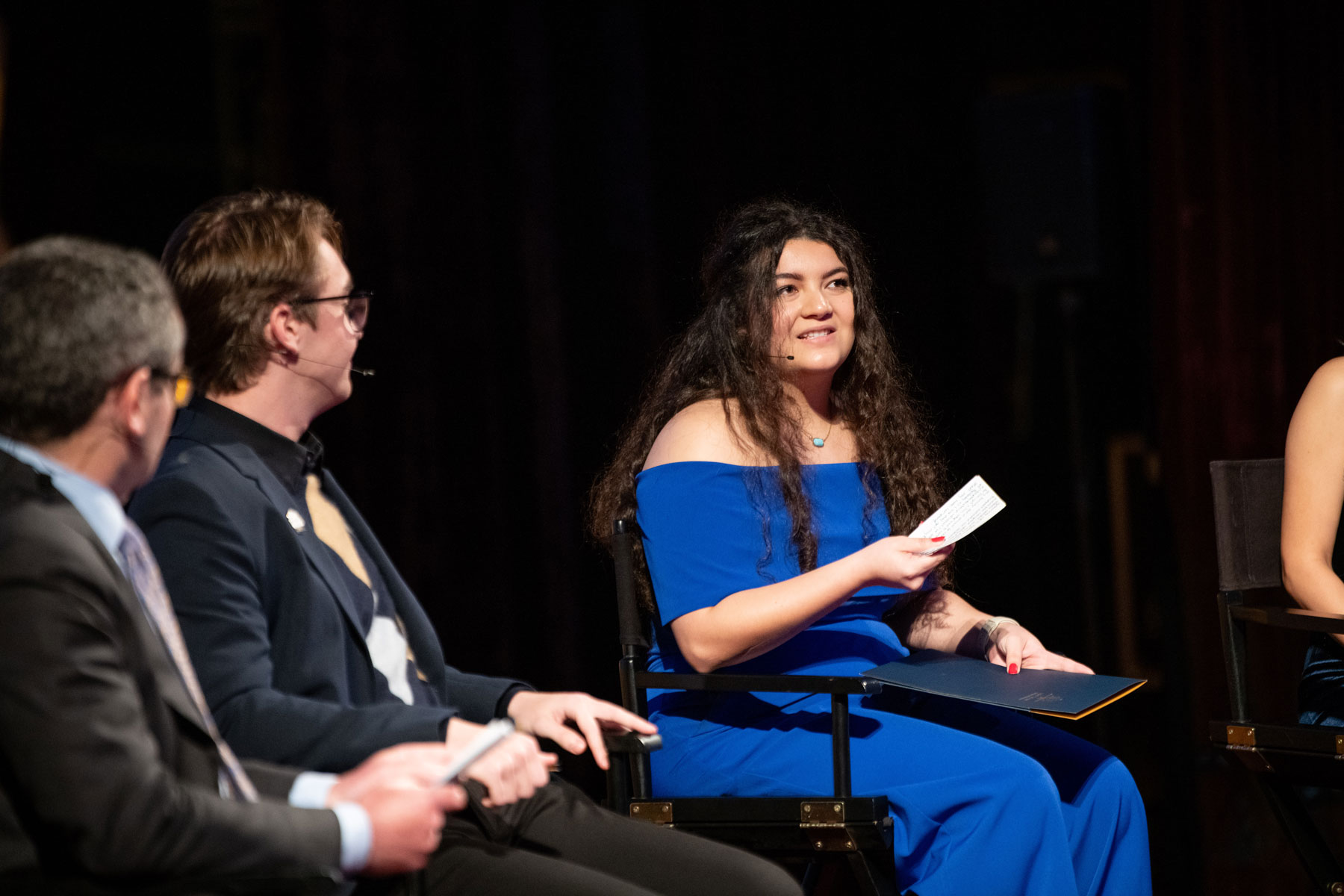
Trinity Reimer speaks during the Discovery Initiative panel at the Light the Way campaign celebration on February 29. UC Berkeley photo by Keegan Houser.
Fourth-year microbial biology major Trinity Reimer has taken full advantage of the extracurricular and mentorship opportunities offered by Rausser College of Natural Resources and UC Berkeley.
Since starting her Berkeley experience on Zoom almost four years ago, Reimer has led DeCal courses, worked as an undergraduate research assistant in the lab of Plant and Microbial Biology (PMB) professor Cecilia Martinez-Gomez, and participated as one of the first participants in the Bakar Ignite Scholars program. These experiences have helped Reimer strengthen her collaborative and technical skills and fueled her passion for microbiology and biotech.
At the end of February, Reimer joined two other undergraduates and Vice Provost Oliver O’Reilly on the Discovery Initiative Panel, which highlighted the program during the celebration marking the end of UC Berkeley’s Light the Way fundraising campaign. We spoke to Reimer about her background, UC Berkeley experience, and plans for the future ahead of the event.
This conversation was edited for length and clarity.
Why did you choose UC Berkeley?
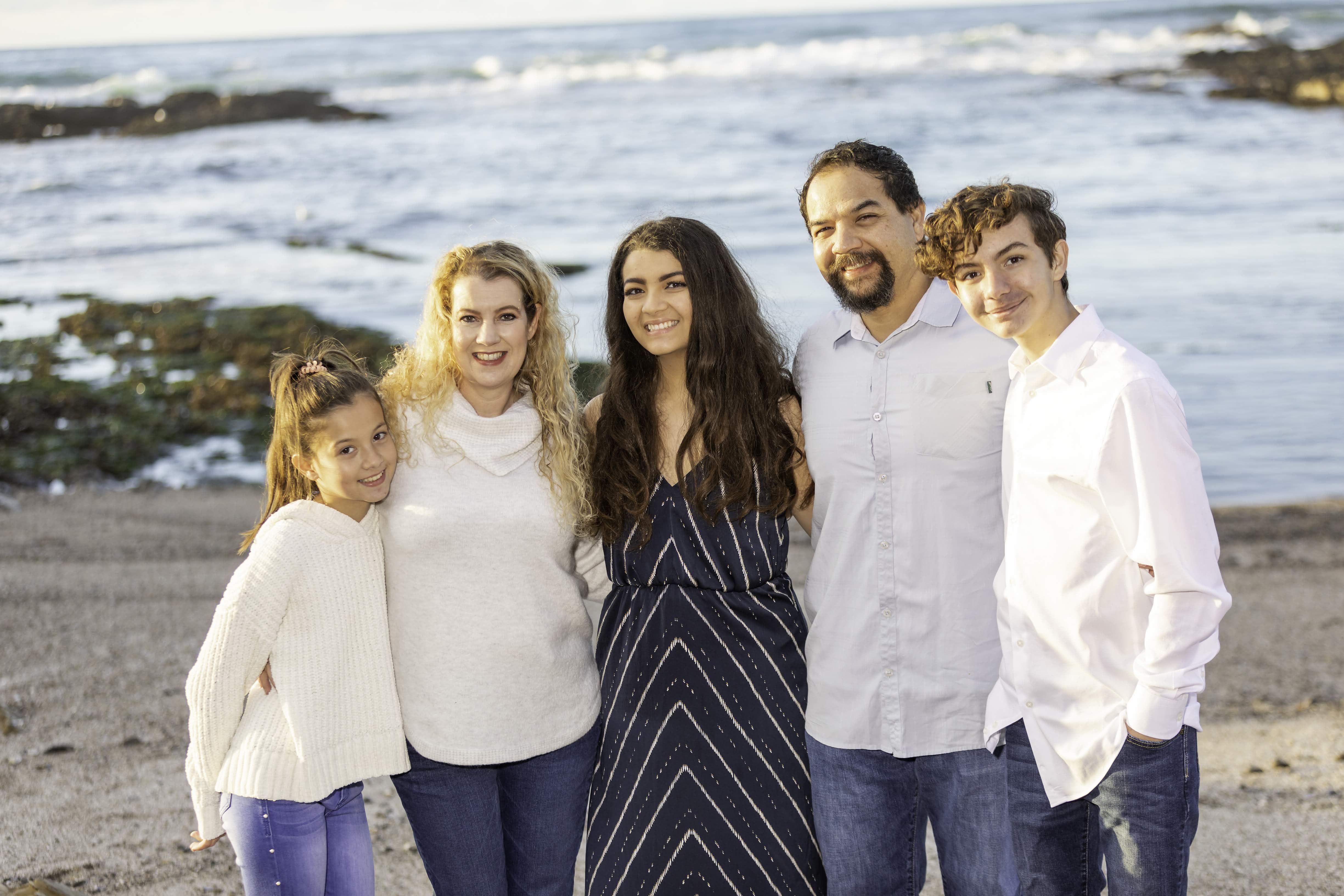
Reimer and her family.
I grew up in Visalia, a small community where educational opportunities are limited, and went to a charter high school that didn't have advanced placement, college prep classes, or any strong lab courses. Thankfully, my passion for learning coupled with my family’s strong support allowed me to push past a lot of those barriers. Because my high school was located on the community college campus in my hometown, I was allowed to enroll in college classes. It’s something I’m fortunate for because the summer I was 16, I took my first microbiology course. It was at 7 a.m. and across town and I’m not a morning person—I normally wake up around 10—but I loved the class so much. I'd show up at like 6:30 to talk to the professor, who became a significant source of inspiration and a great mentor.
As the first in my family to go to a university, I knew I had to make my college experience count. The day UC applications were due, I was talking to my friends and one of them told me I had to apply to Berkeley. At the time I didn’t know much about UC Berkeley. But they were really insistent and told me, if I got in, I would be going to the top public university. So I submitted my application that day and by some stroke of luck, I was accepted. It was a no-brainer once I researched UC Berkeley further since Cal is always at the forefront of innovation and research. I like to think of myself as a highly motivated lifelong learner, and I knew Cal would support me and have undeniable opportunities.
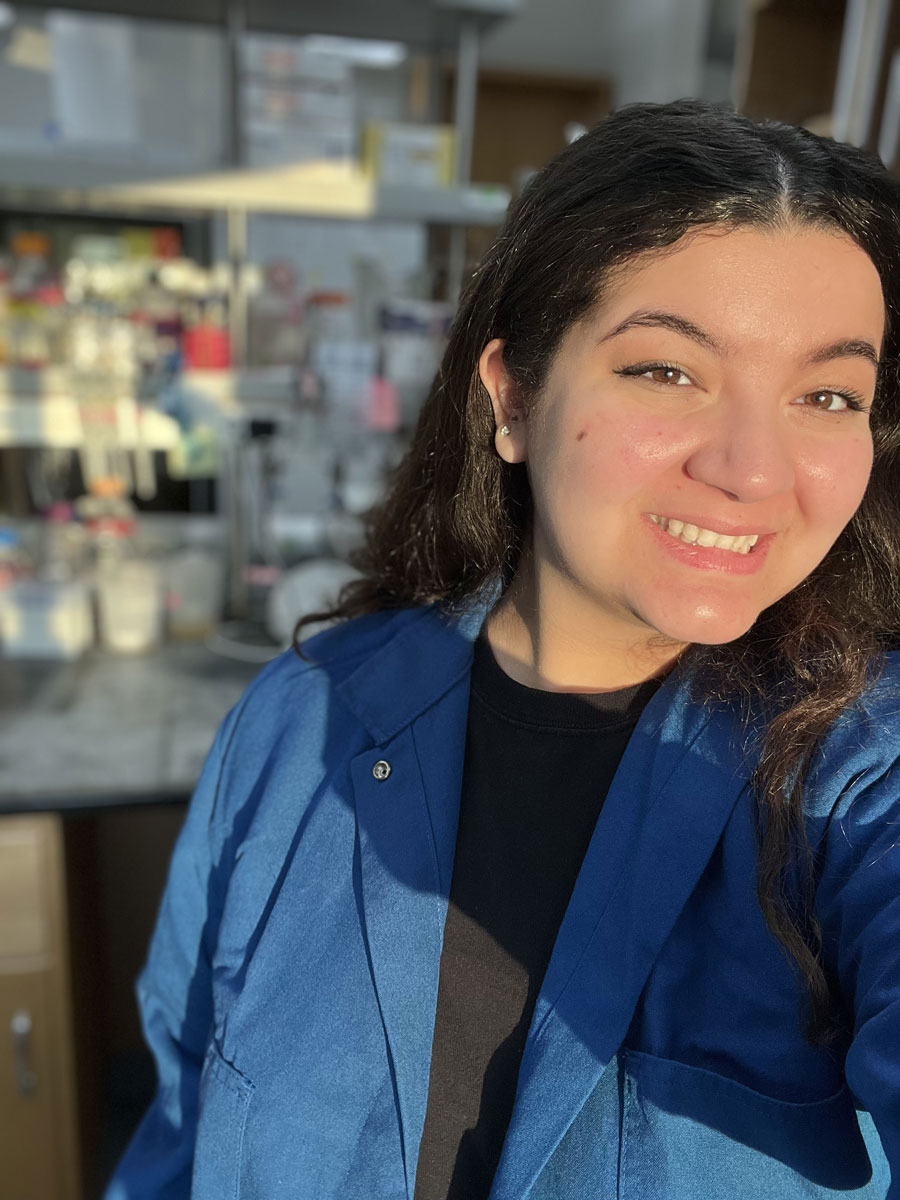
Reimer in the CMG lab.
How were your first few years?
My first year was all online because of COVID, which was a massive adjustment coming from high school and community college classes. It was a little isolating at first, especially as an extrovert, and also a little intimidating to learn from professors who are at the top of their field and graduate students with years of research experience under them. But once classes were back in person and I got past that initial learning curve, I found my groove.
How did you get involved in research?
I applied for a SPUR position in the lab of PMB professor Ceci Martinez-Gomez during my third year. I had no formal lab experience besides my Bio 1A course, but I had a growth mindset and lots of enthusiasm and luckily she was willing to take me on. She’s been an amazing mentor for me, as has Alexa Zytnick, one of the lab’s grad students. They taught me some of the fundamental genetic and microbial biology techniques and procedures, experimental design, project management, and science communication, which are skills I can use for my future career. The overall supportive and goal-oriented environment at the Martinez-Gomez Lab and dedicated mentorship have emboldened me to pursue a career in research and biotechnology.
So far it’s been an absolute dream come true. I started on a project that focused on extracting lanthanides from recycled electronic waste. Part of what I do is optimize a construct for increased expression of a biosynthetic gene cluster that encodes the first known lanthanide chelator, which we predict will increase the bioaccumulation of lanthanides within the cell. With Bakar specifically, I also work on another project focused on engineering bacteria to extract gadolinium from MRI waste and recycle it for the production of new MRI contrast agents. I make a lot of artificial urine media as part of that, which is actually super cool. It's a combination of 10 chemicals and takes an hour to make. Once that’s done, I try to manipulate the bacteria so that they grow in the artificial urine medium alongside gadolinium so that it better accumulates. What Ceci is doing feels like a game changer—she's trying to create a circular green economy and more sustainable access to these essential materials through reduced recovery costs and increased purity of rare earth elements.
How has the Bakar Ignite Scholars program supported you?
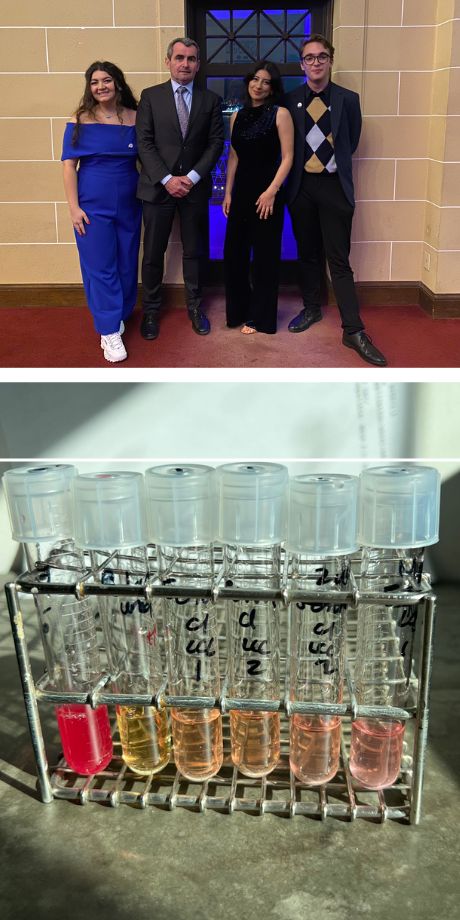
Top: Reimer (left) photographed at the Light The Way campaign close event with Vice Provost O’Reilly and other Discovery Initiative panelists. Bottom: Test tubes containing a pilot urease qualitative assay.
Ceci, Alexa, and Nate Good—a Bakar Innovation Fellow and senior project scientist in the lab—are all so approachable, and I’ve been able to share my concerns with them about whether or not I want to be pre-med. My family ran a senior care facility for 50 years, and I think watching them care for the elderly in my community influenced my desire to go into medicine. But as I started to take more microbiology courses, I thought it would be really interesting to get into research. Ceci and Nate were the ones who introduced me to the Bakar Ignite Scholars program, which has been a helpful stepping stone in making that decision. I still have a lot of love and respect for medicine, but I now know there are other ways to support your community.
The program has shown me how collaborative, supportive, and innovative research can be and provided so many opportunities that I wasn’t aware of before. I’ve been able to dive deep into the world of biotech and see what everyone else is doing. Dr. Jennifer Doudna and Dr. Jill Banfield's revolutionary work in CRISPR, along with Dr. Kim Seed's exploration of phages, and Dr. Sarah Stanley's advancements in tuberculosis therapy all demonstrate the transformative potential of biotechnological research. I’ve also gotten a bit more familiar with what it takes to have a startup and then how to maintain a startup, which were things I wasn’t aware of before the program. I've seen firsthand the way research and biotech tackle real-world environmental challenges in electronic waste recycling. Right now I’m studying host-pathogen interactions and exploring microbial biotech, and I hope to go to grad school to continue studying microbiology. As I graduate in May, I'll carry with me the support of my family and their entrepreneurial influence and my inspiring experiences at Cal that have shaped my purpose in biotech.
Who else at UC Berkeley has provided mentorship to you?
I’ve been very fortunate to participate in the Biology Scholars Program and get to know Dr. John Matsui, the program director, who’s really transformed my professional development. He’s passionate about giving students who aren’t traditionally represented in science a seat at the academic table. He’s helped me with my resume when applying to research opportunities and also taught me how to manage time. He also emphasized the importance of being a science ambassador. As someone who does science every day, he’s shown me that it’s really important to inspire others to go into STEM and to continue the cycle of mentorship—especially in a community like Visalia, where not a lot of people are interested in science.
Are there other groups you’re involved with on campus?
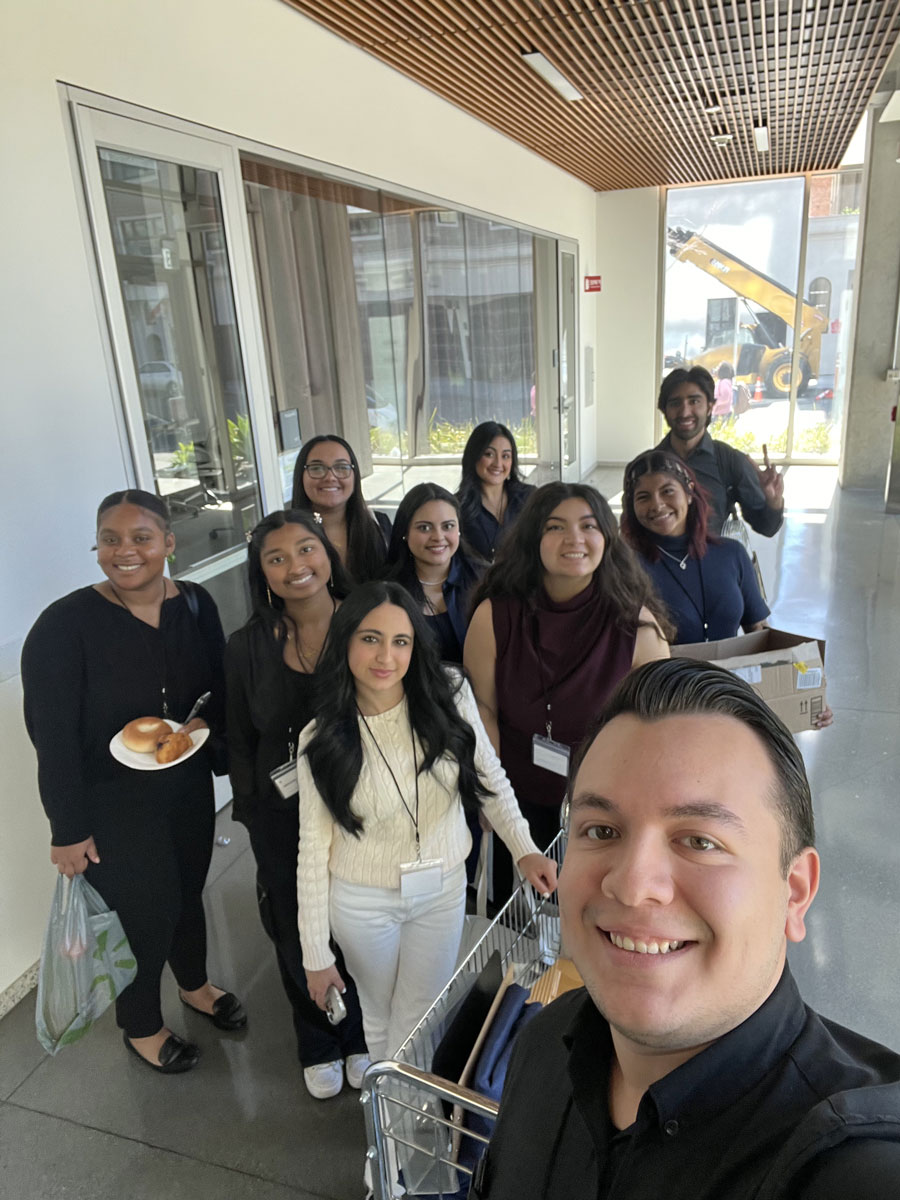
Reimer and members of MEDLIFE's EmpowerMED Pre-Health Symposium event committee.
Even though I don’t plan on pursuing medicine, I’m still passionate about integrating transparency, cultural humility, community, and decolonization when helping others access medicine. I’m co-president of the Berkeley chapter of MEDLIFE, which partners with low-income communities abroad to improve their access to medicine, education, and community development. We’ve met with UC Berkeley’s homeless outreach coordinator Ari Neulight and harm reduction advocate Lisa Teague to learn about their work providing services and outreach to the people who were living at People’s Park, and are planning an upcoming collaboration with the American Red Cross.
I’m also one of the head facilitators of the PreMed 101 DeCal. I’ve taught over 600 students, which has really helped me get more comfortable when talking to people and in front of audiences. I’ve also heard so many different perspectives about why people want to go into medicine and how important it is to have diversity in medicine. These experiences not only created a safe space for my peers to thrive but also gave me a sense of belonging. Both extracurriculars have taught me invaluable lessons about leadership, collaboration, and sticking with your values that I will carry with me throughout my journey.
Do you know of a student or group in Rausser College involved in noteworthy research, community outreach, or extracurricular activities? Let us know by submitting a suggestion with this nomination form.
